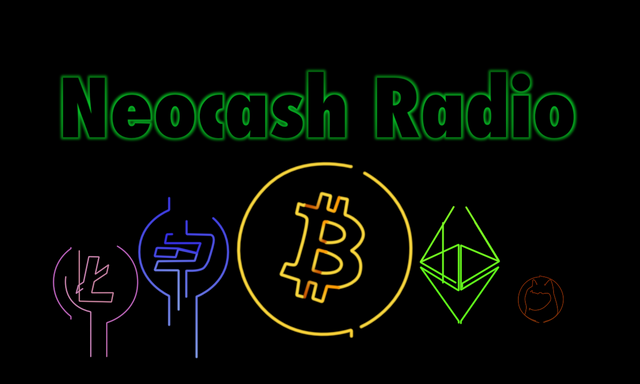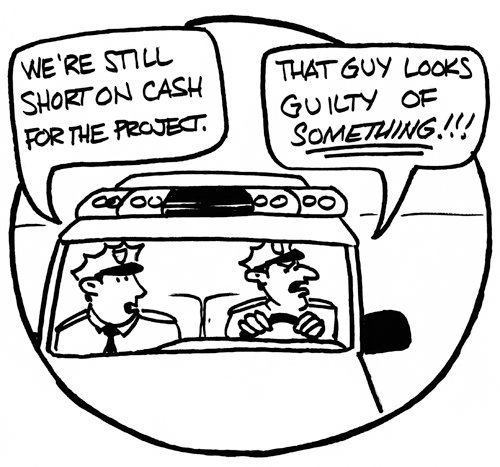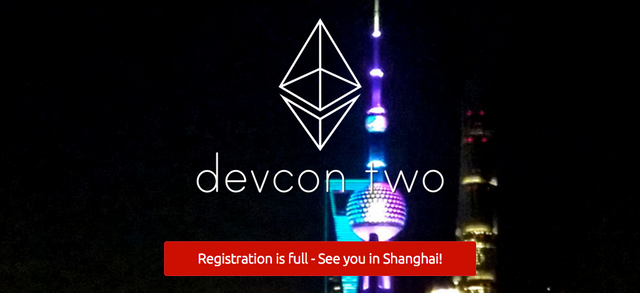The Federal Reserve has no exit, @rogerkver's 1st Bitcoin Unlimited block mined, Ethereum Devcon 2, Credit Unions grow amidst bank scandals, Synereo raises $3M & more on Neocash Radio Ep. 174 !

Bayer buys Monsanto with largest all cash deal on record. The New York Police Department has used civil asset forfeiture so much that it’s outdated computer system, allegedly, cannot even calculate the amount. The US government wants Deutsche Bank to pay for the financial crisis of 2008. The Wells Fargo executive in charge of the unit that made headlines with phony bank accounts walks away with a $124.5 Million dollar paycheck. Credit unions are looking more appealing in light of the recent bank scandals. The Federal Reserve has no way out of the terrible bailout strategy. A Federal Judge has ruled Bitcoin is money. The Bank of England and PricewaterhouseCoopers are looking to adopt blockchain technology. Synereo raises 3 million so far with a recently started fundraising campaign. We talk quite a bit about the latest news with Ethereum. Roger Ver’s Bitcoin.com pool mines the first Bitcoin Unlimited block.
All this and more on Neocash Radio episode 174 on September 21st, 2016!

🔊 Stream this episode of Neocash Radio, or download the full episode MP3!
Traditional Markets
Gold up $1337
Silver up $19.81
Oil up $45.62
DOW Jones up 18,293
30Y UST down 2.378%
Crypto Markets
Bitcoin (BTC) 597 Down
Litecoin (LTC) 3.77 Down
Dash 11.48 Down
Ether (ETH) 13.36 Up
Monero (XMR) 10.15 Steady
1 doge = 1 doge
(as of 9/21/16 ~6pm EST)
Bayer clinches Monsanto with improved $66 billion bid
Pharmaceutical giant Bayer has signed a deal to purchase agro-terrorist Monsanto for $66 billion, the largest all-cash deal in recorded history. The multi-national conglomerates estimate that the deal will be complete by the end of 2017, pending regulatory approvals.

The New York City Police Department seizes millions of dollars in cash each year as evidence, and they often keeping it—even if no charges are ever filed—through a controversial procedure called civil asset forfeiture. But when pressed as to how much was being seized and from whom, the NYPD claimed that trying to get that information from the 4-year-old computer program that is supposed to track these things... would "lead to system crashes and significant delays during the intake and release process."
Currently, individuals who have cash and property seized often can't get their items back because of the legal costs involved with this guilty-until-proven-innocent perversion of justice. (And of course, having your money stolen makes paying legal fees that much more difficult.)
In the last few weeks, the NYPD somehow felt justified stealing $18,000 cash from a man who they arrested for the inexcusable crime of… carrying a pocketknife. Hmmm...
The US government is trying to make Deutsche Bank pay for the financial crisis
Banking regulators are demanding that Deutsche Bank pay $14 billion for its alleged part in creating the 2008 economic crash. Deutsche Bank says they have no plans to pay; an amount that large would seriously dent their actual cash reserves, which are already being called “critically low.” Levying such a fine could ironically risk creating another financial meltdown.
Wells Fargo Exec Who Headed Phony Accounts Unit Collected $125 Million
Last week, we reported on the latest banking scandal to hit Wells Fargo; they were fined $185 million by regulators because 5,300 employees of the bank created 2 million fraudulent accounts over the past five years to artificially boost their sales numbers and earn rewards. Despite this system-wide abuse, Carrie Tolstedt—the executive in charge of the unit where the fraud took place—is retiring this year with an impressive $124.6 million paycheck.
Wells Fargo CEO John Stumpf has placed the blame solely on “bad employees,” claiming there was no incentive for bad behavior; he’s also praised Tolstedt as one of the bank’s most important leaders ... “a standard-bearer of our culture” and “a champion for our customers.”
Credit Unions See Continued Growth Amidst Bank Scandals
As consumers tire of the continued string of bank scandals, credit unions seem to be getting a growing wave of new interest. The credit union membership growth rate has accelerated every year for the past five years, especially with millennials. Credit unions differ from banks in that they are not-for-profit and they are actually owned and governed by the members of the credit union, not outside shareholders. And because credit unions are not-for-profit, they also often charge lower fees than banks, pay out dividends to members, and can offer more favorable interest rates on loans.

The Federal Reserve had a plan to stop propping up the US economy: raise the target interest rate to 3.5% and shrink the bloated $4.5 trillion dollar balance sheets. It looks like neither of those options are tenable, surprise! The target is now an optimistic 3% and there are no plans to sell-off assets. Add in the fact that the Fed is the lender-of-last-resort for US Treasuries and that balance sheet may never go down again.
Bitcoin is money, federal judge rules in case tied to JPMorgan hack
Welcome to the newest episode of our game show: What IS Bitcoin? Is it money? Is it property? This is separate from the Florida Bitcoin case we discussed two weeks ago where Bitcoin was ruled not to be money, then they took that back…
This case circles around the alleged owner of the “unlicensed” coin.mx exchange, charging that he and two others may have hacked a dozen companies, including JPMorgan. They allegedly exposed the personal data of more than 100 million people, and reportedly laundered proceeds through Bitcoin, which according to this particular judge... is money.
More big endorsements for exploring blockchain technologies
The Bank of England has announced that it will upgrade its Real-Time Gross Settlement system by 2020 so that it will be more easily accessible by smaller institutions, available 24/7, and able to operate with blockchain-style distributed ledgers.
PricewaterhouseCoopers recently challenged the insurance industry to adopt ‘technologies such as blockchain’ and deliver ‘millions in savings’ to their customers as they explore cost reduction strategies.

As we reported three weeks ago, Synereo has released an alpha client of their decentralized, open-source social network and they’ve started their second crowdfunding campaign, which has raised just over $3 million as of 9/21/2016 4:20pm.
The planned crowdsale began three days after an announcement that the co-founders destroyed about half of all AMPs held in Synereo’s wallets, including the Founder and Future Funding wallets, effectively destroying $146,221,787 USD worth of AMPs.

Vitalik Buterin took to the stage at the Ethereum Shanghi developer conference, Devcon 2, this week. He talked about the much anticipated proof of stake solutions the protocol hopes to implement -- virtual mining, a method that tries to mimic bitcoin’s Proof-of-Stake without wasting electricity. The key will be incentivizing participants to back the winning chain. Additionally the plan includes sharding:
“Sharding is a scalability solution in which nodes from a global validator set (in our case created through proof of stake bonding) are randomly assigned to specific "shards", where each shard processes transactions in different parts of the state in parallel.” —Vitalik Buterin
Viktor Trón talked about Swarm -- the database and file-sharing portion of the ethereum system. Swarm would use Whisper on top of the Ethereum Virtual Machine to store and retrieve files while incentivizing and validating the intact data through a “Proof-of-Custody” system. Participants can elect varied levels of commitment through registering their nodes and agreeing to “Swear” Contracts wherein a security deposit is paid. These nodes would be able to offer long-term solutions negotiated through selling promissory notes. Dispute resolution is handled through “Swindle” contracts.
Spanish Mega-Bank Santander is working with the Ethereum blockchain to tokenize cash for use in online transactions. The customer could elect to convert cash in their bank account to tokens called “Cash ETH” with the transaction conducted on the Ethereum blockchain. Gas costs are paid upfront and the customer has a certain pre-set number of transactions allocated before more funds need another gas deposit.
Ultimately “ETH Cash” is just another debt instrument with trust that Santander will redeem tokens for government fiat. The fact that it is being orchestrated on the Ethereum blockchain is a new innovation. What happens if someone who is not a customer of Santander wants to redeem “ETH cash”? Can Santander game the system and create tokens out of thin air? Is this just another fractional reserve scheme?
Roger Ver has a block party
The Bitcoin.com pool mined its first block, block 430757, on Wednesday September 21, 2016.
This is a significant day in Bitcoin history, and one for future Bitcoiners to remember. While mining pools have come and gone over the years, this is important because Bitcoin.com uses the Bitcoin Unlimited protocol, which allows miners to set their own blocksize limit as opposed to the Bitcoin Core model.
Just shared on twitter for my followers to read Twitter✔. Great post. Now following and looking forward to seeing more of your stuff. I posted something earlier about how STEEMIT has the potential to put Facebook in the dark with a +$500 billion valuation. I know that it sounds crazy at first, but after I started to share it with my followers on Twitter they have suddenly got what STEEMIT is all about. Take a read of it, it may blow your mind. Following. Cheers. Stephen
Are there topics we are missing and ought to cover?
You need to add STEEM to your price quites. Good coverage!
That was alot of news, good job!
Post included in: Steemprentice spotlight #3 - Steemit Mentors and Mentees helping everyone steem better!
Wow, really? A $124.6 million paycheck? What can we do to stop this?
upvoted and followed . You may find some of my work interesting @me-tarzan